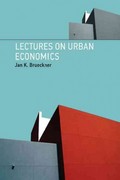Answered step by step
Verified Expert Solution
Question
1 Approved Answer
Consider a cheap talk signaling game. The state of the world is = 1 or 2. Each state is equally likely. In the game, the
Consider a cheap talk signaling game. The state of the world is = 1 or 2. Each state is equally likely. In the game, the Expert E learns the exact state. Then E sends a message m to the Decider D, where m is one of the possible values of . After hearing the message, D chooses a policy p, which is a number (any number is a possible policy). D's utility is |p |, and E's utility is |p 1|. So, D wants policy p = , but E wants p = + 1.
- (a)Suppose E uses a separating strategy: send m = 1 if = 1, and sendm=2if=2. WhatpolicydoesDimplementafterm=1 and m = 2?
- (b)Given how D responds to each message, does E prefer to send m = 2 when = 2, or is m = 1 better?
- (c)Given how D responds to each message, does E prefer to send m = 1 when = 1, or is m = 2 better?
- (d)Is there a PBE in which E uses this messaging strategy?
- (e) Consider a cheap talk game exactly like the previous problem,except =1or20. Is it aBNE for E to send m=1 if = 1, and m = 20 if = 20?
Step by Step Solution
There are 3 Steps involved in it
Step: 1

Get Instant Access to Expert-Tailored Solutions
See step-by-step solutions with expert insights and AI powered tools for academic success
Step: 2

Step: 3

Ace Your Homework with AI
Get the answers you need in no time with our AI-driven, step-by-step assistance
Get Started


